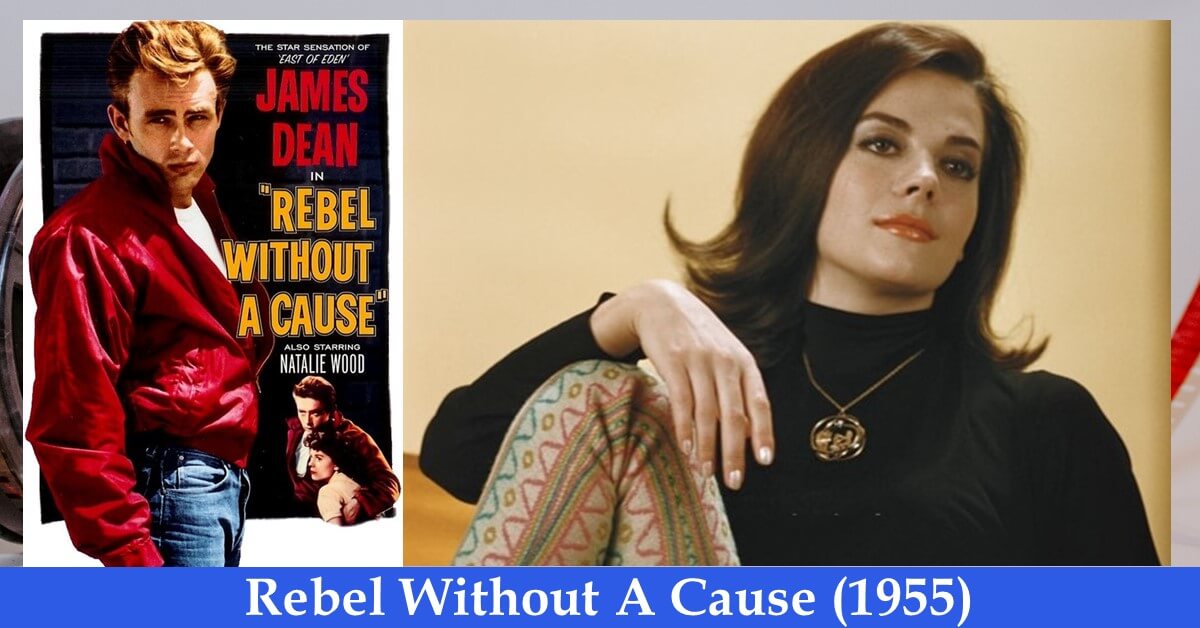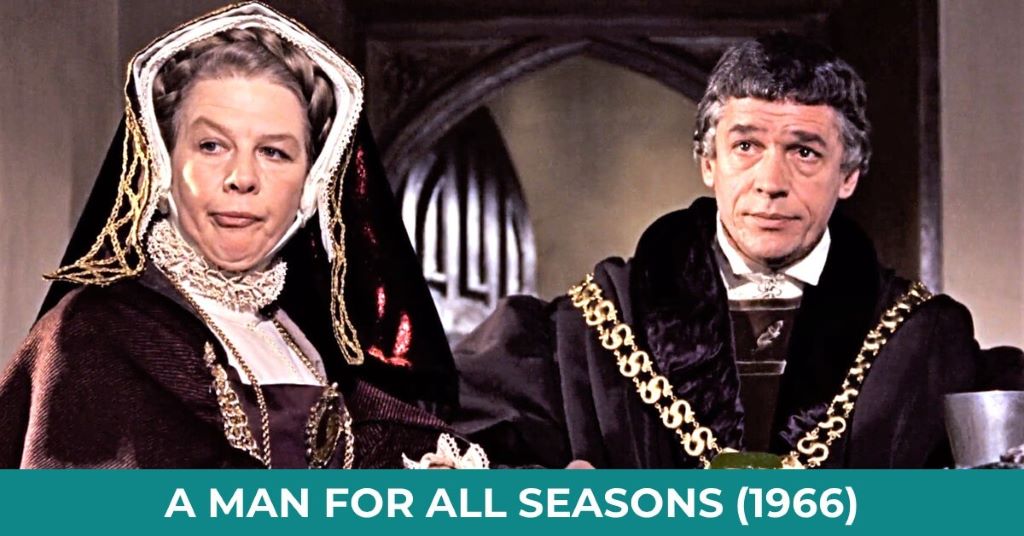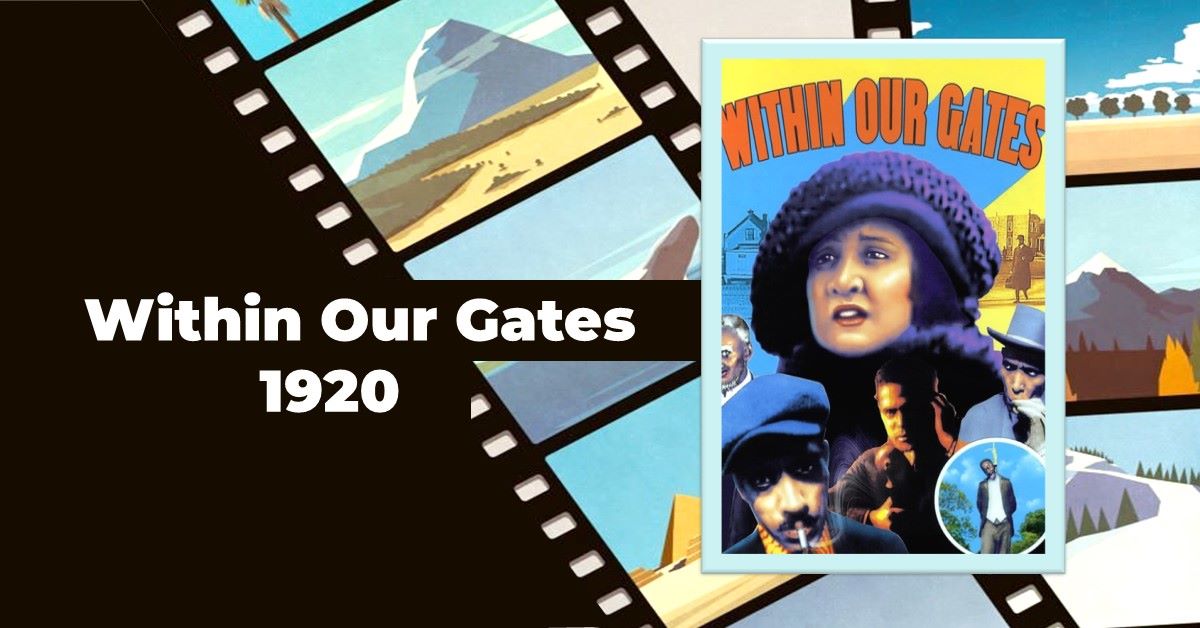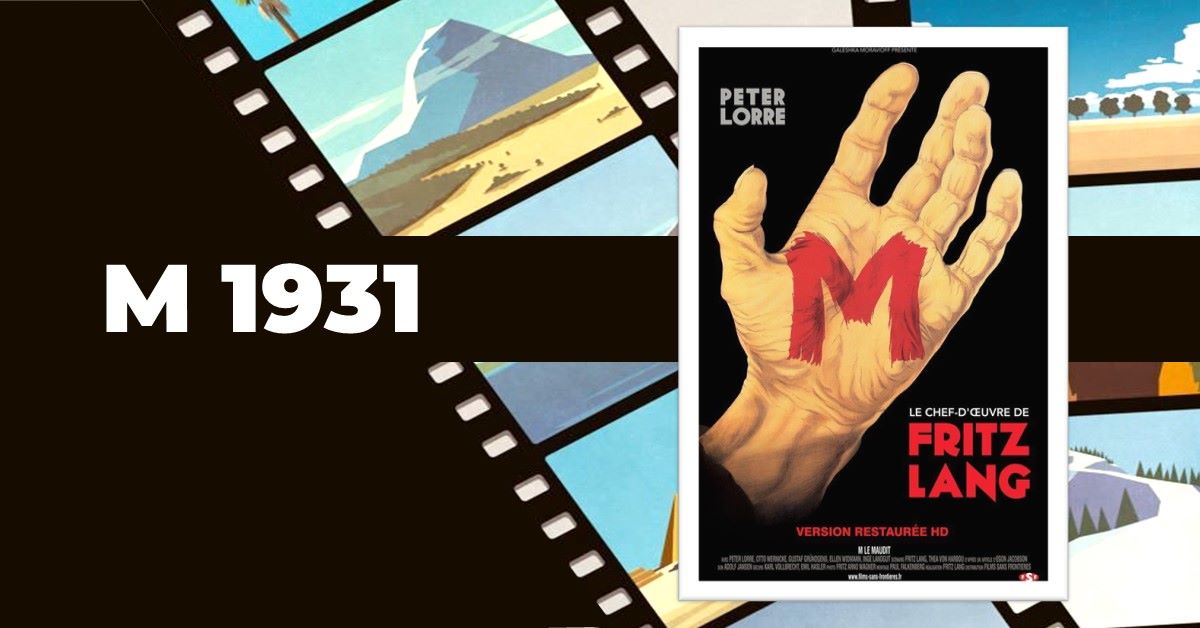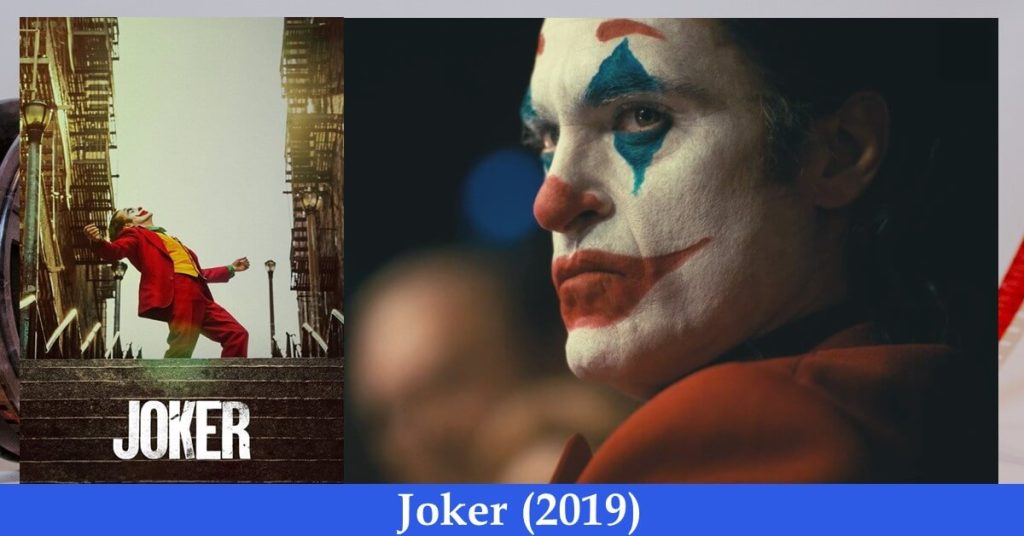Last updated on June 27th, 2024 at 11:37 am
Rebel Without a Cause is a timeless classic directed by Nicholas Ray and released in 1955 and is undoubtedly a masterpiece with its iconic portrayal of teenage rebellion, alienation, and the search for identity in a rapidly changing world.
Rebel Without a Cause has etched its name into the cinematic pantheon as a symbol of youthful angst and rebellion. Rebel Without a Cause became a rallying cry for a generation seeking meaning in a world full of uncertainty.
The 1955 film Rebel Without A Cause is a part of my journey to watching the 101 best films of 100 years: from 1920 to 2020. Starring James Dean (as Jim), Corey Allen (as Buzz), Sal Mineo (as Plato), and Natalie Wood (as Judy Rebel Without a Cause is about middle-class juvenile delinquents from dysfunctional families who are trying to carve out their identities in an uncertain world. Directed by Nicholas Ray, the film featured Los Angeles’s Griffith Observatory.
Rebel Without a Cause 1955: Background
Before and after Rebel Without a Cause 1955, Griffith Observatory appeared in nearly 30 films and many TV shows. “The Griffith Observatory was the third planetarium built in the United States during an era when American cities were clamouring for such buildings, which were viewed as the epitome of civic virtue, the purpose of which was to serve as museums, theatres and educational facilities in an effort to inculcate higher values”, writes Merrill Schleier in her The Griffith Observatory in Ray’s Rebel Without a Cause 1955: mystical temple and scientific monument.
The film’s featured lecture ‘the end of the world’ in the planetarium parallels the rebellious teenagers and their chaotic familial relationships. The American drama film was released in 1955 featuring James Dean who died one month before the release. The film shows us the existential loneliness of all humans as the world is getting modernised.
Tokyo Story (1953) talks about the emptiness felt by the elderly generation, M (1931) displays a pathologically disturbed man’s thirst for offending and killing children just because he cannot help it; Joker (2019) shows how society has to recognise the importance of every individual’s existence.
Here Rebel Without a Cause (1955) tells us the fatal consequence of being lonely. Moreover, the ‘End of the Earth’ lecture in the Griffith Observatory planetarium talks volumes of the possible cause of planetary destruction: global warming!
End of the Earth lecture:
“For many days before the end of our Earth, people will look into the night sky and notice a star increasingly bright and increasingly near. As this star approaches us, the weather will change. The great polar fields of the north and south will rot and divide. And the seas will turn warmer.
The last of us search the heavens and stand amazed. For the stars will still be there moving through their ancient rhythms. The familiar constellations that illuminate our night, will seem as they have always seemed: Eternal, unchanged and little moved by the shortness of time between our planet’s birth and demise.
Orion, the hunter. One of Ptolemy’s constellations, and the most brilliant in the heavens. They’re almost equal in brilliancy. Cancer, the crab, contains a large, loose cluster of stars called Praesepe or the Beehive. The sun can be vertically overhead. Taurus, the bull.
“Sagittarius and Aries. While the flash of our beginning has not yet travelled, the light-years into distance has not yet been seen by planets deep within the other galaxies, we will disappear into the blackness of the space from which we came, destroyed as we began, in a burst of gas and fire.”
“The heavens are still and cold once more. In all the immensity of our universe and the galaxies beyond the Earth will not be missed. Through the infinite reaches of space, the problems of man seem trivial and naive indeed. And man, existing alone seems himself an episode of little consequence.”
Storyline
Jim was picked up from the middle of the street by Juvenile Division police for drunkenness. Judi is already being awaited to be interrogated by the police in the station. She runs away from home and was wondering around in the middle of the night of Easter because she thinks her father hates her because she is no longer a child and therefore when she puts on a lewd dress and lipstick he rubs off all her lipstick and called her a dirty tramp and that he was not paying attention to her.
Jim got away from home frustrated because his parent would not let him have any friends. That they are overprotective and do so by moving around all the time. “Just move everything will rise and sunshine’ they say”, says Jim, “that house is a zoo for me”. He does not want to grow up in a circus like this, where his father is considered a chicken, a henpeck, dominated by his wife, and who lacks manhood.
A teenage boy nick-named Plato, whose father abandoned him and whose mother is often away from home, was also brought up in there in the police station because he shot a couple of puppies. He did not tell the police why he killed them with the gun that he found in his mother’s drawer. It seemed, though, that he did that out of frustration because his parents were not there for him when it was his birthday.
However, Jim was encouraged and let go by the police because of his parent’s intervention. The next day the on their way to school he suddenly ran over Judy, whom he first saw in the police station. He found out that she is a part of the Dawson High School gang of boys. Nevertheless, he fell for her.
All three, Jim, Judi and Plato, attended the same school: Dawson High School. The school’s Junior and senior planetarium field trip was scheduled to Griffith Observatory. During the lecture ‘The End of the Earth’, in the planetarium, Jim tried to draw attention by making a moo sound. But Plato warned him that it’s hard to make friends with the gang boys, especially Buzz and Judy.
Bothered by his presence and the sound, the gang decided to go against Jim. Each of them waylaid across the hall doors for that matter. While pondering on the possible trouble in a secluded space, Plato told Jim that there is a big deserted mansion on the hill close to the Observatory where they can hide.
They punctured Jim’s car tyre, in the meantime. But still expecting no trouble, he went down to the driveway to change the tyre. In Jim’s passive action, they infuriated him by calling him ‘chicken’, which he disdained most.
The ring leader, Buzz invited Jim for a knife fight, even though Jim did not want to engage himself in such a thing. Consequently, Jim defeated Buzz but left him unharmed. Instead of leaving Jim alone so quickly, Buzz invited him for a chicken race on Millerstown bluff to prove his manhood. They decided to meet at 8.00 o’clock in the evening.
That night Judy asked for a kiss from her father, who objected and said that she is a little too old for that. That’s what he used to do when she was a little girl. He slapped her as she tried to kiss him on the cheek on the dinner table. Humiliated, Judy ran off to Millerstown Bluff.
For the sake of honour and to demonstrate his manhood, Jim showed up to the gang on the buff. Buzz and Jim started the race. Below the cliff is the sea with the stony wall. The racer is to jump off the car before it plunges into the depths of the sea.
Buzz said they would head for the edge, the man who jumps first is a chicken. Jim managed to jump out of the car while Buzz plunged into the sea as he could not get out of the car because the strap of his jacket got stuck with the door-latch lever.
Horrified and terrified Jim, Judy and Plato returned home that night. Jim revealed to his parents what he did. He did that because he did not want them to call him a chicken. However, he wanted to report the crime to the police, which his parents severely objected against. He reasoned that he can’t pretend like nothing has happened.
However, Carol, his mother proposed to move away once again. Jim did not want that either. He did not want that because he did not want to take the blame for moving like every time they moved. Every time they move it’s either because of him or his neighbour.
Jim demanded his father to stand for him against his mother who proposed to move. But he remained silent and unmoved. A scuffle ensued between Jim and his father because of his inability to stand against his mother. Jim ran out of home in the middle of the night. He went to the police station.
But nobody paid attention to what he had to say or was going to say. Everyone seemed busy. Police did not register the case with Jim. He rather went to meet Judy. But the rest of the gang boys, who were arrested and released later, outside the police station realised that Jim is going to reveal their involvement in the accident. They went after him once again.
The gang boys found Plato in front of his residence and they forcefully tied to get information about Jim but was spared as his caregiver intervened in the situation promptly. Hurriedly Plato went inside the house and found a check for his maintenance by his other and a gun under the bed. And busily ran away in a view to warn them.
That night Judy and Jim met secretly outside her house. Jim proposes her to go with him to the place Plato talked about. And Plato also followed them to the deserted mansion. Moreover, the parents of the two and the caregiver of Plato reported their missing to the police station.
Plato, who had been lonely all his life, has placed Jim and Judy on their parents’ position there in the mansion. Jim and Judy romantically explored into a different room while Plato fell asleep on the floor after a long happy talk.
Judy confessed that she was looking for someone to love her. “All the time I have been looking for someone to love me. Now I love someone”, said Judy. “And it’s so easy. why is it easy now? And I don’t want you to run away from me again!”
The gang boys, who were looking for Jim, have found their way to the mansion by the time. They eventually found Plato. However, he dodged them and ran away into the woods, shooting one of the three boys, while police were warning him to surrender. Instead of surrendering, Plato ran toward the Observatory and broke in.
But while the police have already surrounded the planetarium Jim and Judy too joined John inside the Observatory. Jim was able to convince Plato to hand over the gun to him and promised to give it back after seconds. Even though Jim really returned the gun to him, but bullets were removed. Jim removed the bullet without Plato noticing it.
Jim implored him to come out of the planetarium which he agreed, to be united with him, family. But the moment he saw the gang boys he changed his mind. He demanded that Jim must tell the police to make them go away.
All of sudden, Plato intended to run away from Judy’s clutch with the gun in hand when the police turned on the light which he demanded to keep off. Police did not know that the gun was empty and as a result, one of the policemen shot Plato down on the floor of the planetarium.
Jim and Judy were devastated. A lonely boy who did not have anybody was killed for no crime he committed. Instead of surrendering, Plato did not like to be in constant fear and bullied by school-gang.
The parents of Jim smiled that Jim is in love and the caregiver lady of Plato bewailed because the boy whom she took care of is no more.
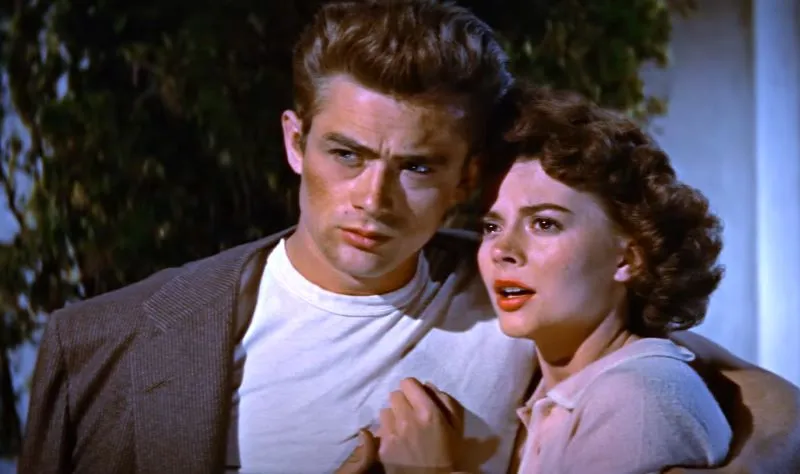
Rebel Without a Cause 1955 Quote:
You had a good start and a wrong direction.
Oh, that’s a new disease—Judy’s remark towards Jim when he showed his interest in her.
In all the immensity of our universe and the galaxies beyond, the Earth will not be missed. Through the infinite reaches of space, the problems of man seem trivial and naive indeed. And man, existing alone seems himself an episode of little consequence.
It’s just the age when nothing fits.
What can you do when you have to be a man?
Rebel Without A Cause 1955 quote
You can’t be idealistic all your life. Nobody thanks you for it. Except to yourself!
Overview
Rebel Without A Cause is the title of the new film at the London Pavilion, and to rebel without a cause implies to rebel without a reason.
Certainly, the impression left by Mr. Nicholas Ray’s intense and imaginative study of certain aspects of American juvenile delinquency is the lack of proportion between the fuss the boys make and the offences they commit and the reasons advanced for their behaviour.
Modern fashion has promoted the routine of blaming the parents for the sins of the children to a fine art; the last person to be held responsible for delinquent behaviour is, of course, the delinquent himself.
It is not necessary to be a bigoted reactionary out of all sympathy with the emotional problems and difficulties of youth to hold that Mr. Ray’s specimens deserve not commiseration but a visit to the headmaster’s study—only the school they attend does not seem to have such an animal and discipline is not one of the subjects on the curriculum.
Mr. Ray is original in that he focuses his attention not on delinquents from the slums but on boys and girls from middle-class, affluent homes who go in their own cars to a curious institution which is apparently a high school. The film opens with Jim (James Dean) being picked up by the police for being drunk. Poor Jim has parents who seem extremely well-meaning but have the almost unknown and wholly deplorable habit, enough to excuse murder, let alone drunkenness, of occasionally bickering between themselves. Judy (Miss Natalie Wood) also finds herself in the police station, and she, the outraged wretch, has a father who is monster enough to discourage her from slobbering over him at breakfast.
Plato (Sal Mineo), a younger boy, has parents who are divorced, and that is always a sad and, for the child, a bad business, although with sense, courage, and self-discipline it need not necessarily end, as here it does, in a gun duel with the police.
Rebel Without A Cause preaches a suspect doctrine, but that does not stop it from being a brilliant piece of work, an excitingly intelligent exploration of the adolescent mind.
There is one memorable scene which sees the three of them alternating between a Hamlet-like sense that life is awry and too difficult for them and a sudden relapse into the games and idiom of childhood—it is a scene reminiscent of ballet, but then all through Mr. Ray is trying to do more than reproduce the surface appearance of things.
The film, like adolescence itself, moves by fits and starts, now deliberately inarticulate, now breaking into a burst of frenzied expression. It uses the condensed language of verse rather than the relaxed rhythms of prose, and James Dean wonderfully enters into the mood and intention of the whole. His Jim is a creature trying desperately to communicate his need and his loneliness, and all that he can manage is a kind of inspired yet jerky, intermittent, uncertain form of morse code.
It is at once, like the efforts of the adolescent to understand, too much and not enough.
Conclusion
Rebel Without a Cause 1955 is not only one of the 101 best films of the 100 years but it has also been included in the Library of Congress’s National Film Preservation Registry Index in 1990 because of its cultural and historical significance.
Rebel Without a Cause, an allegory of growth and the painfulness of growth transcends its own lurid excesses and now-dated topicality to stand as the kind of big pop myth that defines the Hollywood studio movie at its most potent, as says film critic Jay Carr of The National Society of Film Critics.
The film’s real message is that the instincts of alienated teens are right and that if they are to live lives worth living, they must break away from the adult world trying to steamroll, desensitize, and compromise them and create their own world.
With shallowness in writing in a few places, Rebel Without a Cause 1955 is certainly a masterpiece in the history of cinema.
